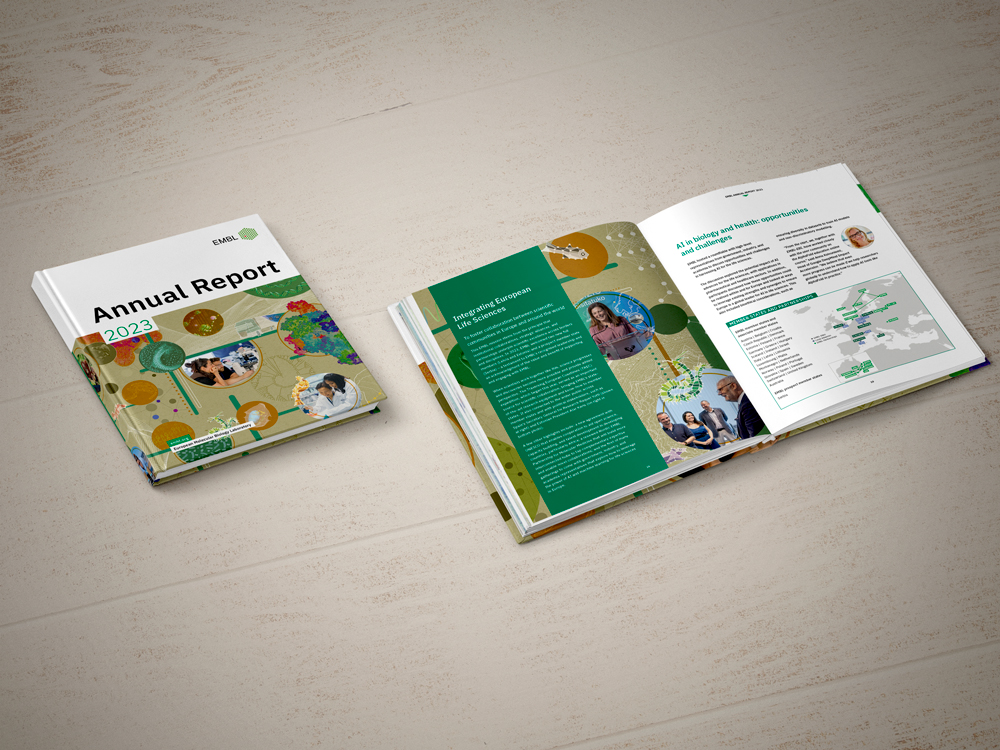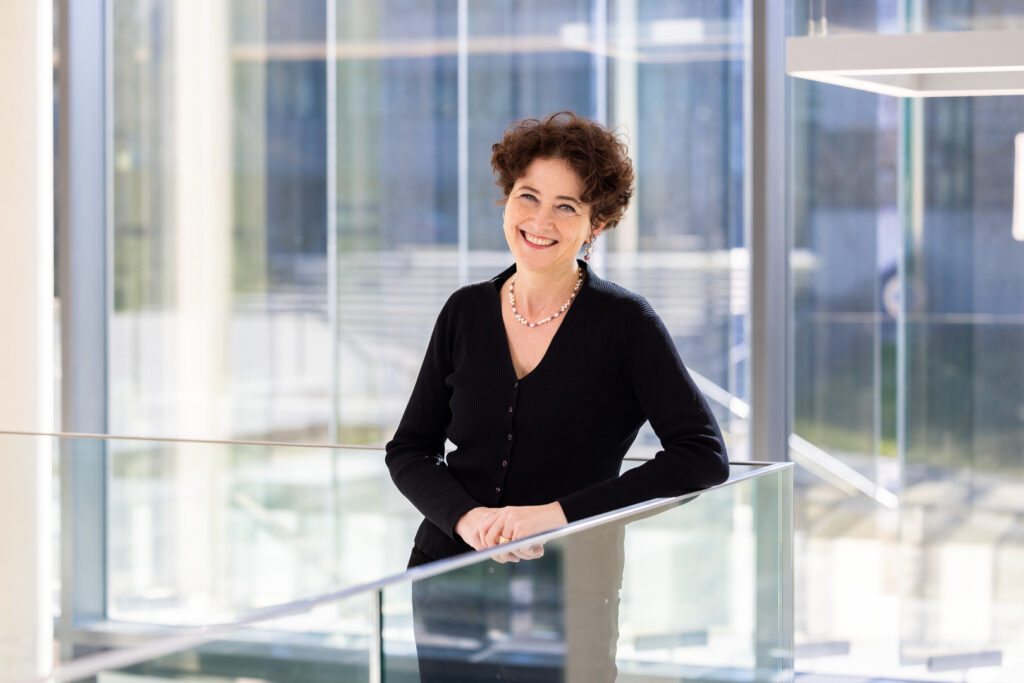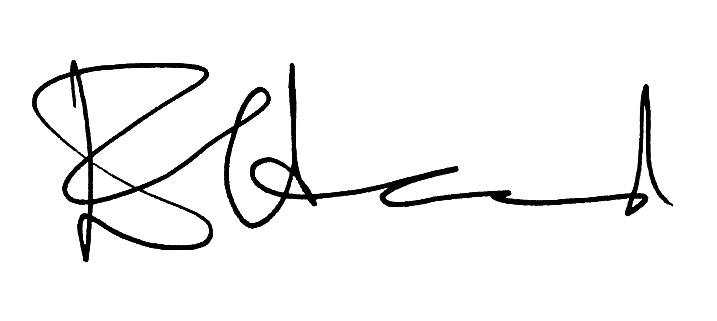
Much more than the sum of our parts
EMBL programme hits its stride as EMBL works with partners to strengthen European science and the novel discoveries it affords

From the beginning, EMBL has been about togetherness.
In 1974, 10 countries came together because they believed in the need and the potential for a European life sciences research organisation. Together, they supported this endeavour, and the institute that sprung up from this union likewise yielded benefits for all. Over the years, the number of member states has grown, as have the partners that expand what EMBL can do. When I look back on 2023, the basis of so much of what we have accomplished comes down to the extraordinary cooperation both within EMBL, and outside it with our member states, alumni, donors, and a huge network of collaborators around the world.
“Alone we can do so little; together we can do so much.”
From Helen Keller, the noted disability rights advocate, these words still ring true, especially at EMBL. Partnership and collaboration expand what we do collectively, but also individually. And it’s not just about swapping skill sets. Our perspective expands too. Partnerships multiply our capacity with mutual benefits for one another but also for scientific quests that go far beyond our own work as we build tools that help others. Our partners do allow us to do much more.
This past year, Latvia and Estonia formally joined us as member states. Scientific partners such as Latvia’s Biomedical Research and Study Centre and the University of Tartu in Estonia will only serve to make EMBL stronger. Likewise, Serbia became our latest prospect member state, and we look forward to exploring this relationship and sharing knowledge and expertise with its scientific organisations.
In 2023, the Traversing European Coastlines (TREC) expedition began. A major new initiative in EMBL’s ‘Molecules to Ecosystems’ Programme, EMBL’s Advanced Mobile Lab took TREC sampling to the next level, bringing new, cutting-edge technology to the field for us, as well as for new and established partners. Group leaders early in their EMBL careers, such as Gautam Dey, Flora Vincent, Hanh Vu, and Michael Zimmermann, seized these new opportunities – many of which would not be possible without this unique field sampling.
The rewards of world-class research, services, and training
This annual report connects to many stories of EMBL’s progress in 2023, including these highlights:
- EMBL Heidelberg researchers uncovered new drug combinations to fight multidrug-resistant staph infections.
- EMBL-EBI was part of a consortium that expanded the human reference genome such that it better captures population diversity, with the data now being freely available via Ensembl.
- At EMBL Barcelona, the Haase group built a mammary gland in vitro to help better understand how cancer drugs affect humans and their reproductive health.
- Structural biologists benefited from a new EMBL Hamburg Spitrobot that simplifies sample preparation for time-resolved crystallography, as well as upgrades to the small-angle X-ray scattering (SAXS) beamline at EMBL Grenoble and ESRF.
- A new study on retinal function from the Asari group at EMBL Rome offered insights to inform the future development of prosthetic retinas.
Additionally, in EMBL’s training mission, our already highly impactful postdoctoral fellowship programme expanded to more fully integrate member state research assets and take advantage of the life-in-context focus (LinC) of our Programme. We selected the first cohort of EIPOD-LinC fellows, and I am excited to see where their research leads. Also notable, we are spreading awareness about the importance of coastal ecosystems around Europe thanks to TREC, as part of our Science Education and Public Engagement (SEPE) activities. Last year also saw the opening of the bilingual World of Molecular Biology exhibit in Heidelberg, providing beautiful and interactive displays intended to inspire and inform visitors about molecular biology’s relevance to everyday life.
AI in the foreground
Given the huge interest in AI and the potential opportunities it can offer in the life sciences, EMBL decided to host a roundtable for member state political and scientific leadership about AI advances in biology and healthcare, spurring discussion on ethical considerations. Former EMBL staff scientist Kashif Sadiq founded a start-up – DenovAI – for broader, faster, and cheaper antibody discovery using advanced machine learning – a great testimony to how fundamental research parlays into AI applications. AlphaFold and a new algorithm called Foldseek Cluster allowed researchers to analyse over 200 million predicted protein structures, providing new insights into the evolution of human immunity proteins.
EMBL is about people
During 2023 we said goodbye to several wonderful long-standing EMBL colleagues and eminent scientists who retired, including Stephen Cusack, Anne Ephrussi, Toby Gibson, and Janet Thornton. They are some of EMBL’s scientific giants, whose shoulders we stand on!
While this year repeated its economic and energy cost challenges for the organisation, new research and new services persevered, thanks to our committed, resilient EMBL family. We saw many of our group leaders and scientists across EMBL embrace our Programme, stretching themselves as they explore new directions and embark on a new era of life sciences. We also saw an organisation committed to doing its work sustainably as energy savings exceeded expectations, and our labs received LEAF certifications for new, more sustainable operations.
I’m proud of, but even more so, impressed by, the remarkable stories we have at the end of 2023. In the face of challenges, we have come together. Through this power of collaboration, our curiosity is stoked, our science is stronger, and together, we are making the world a better place.

